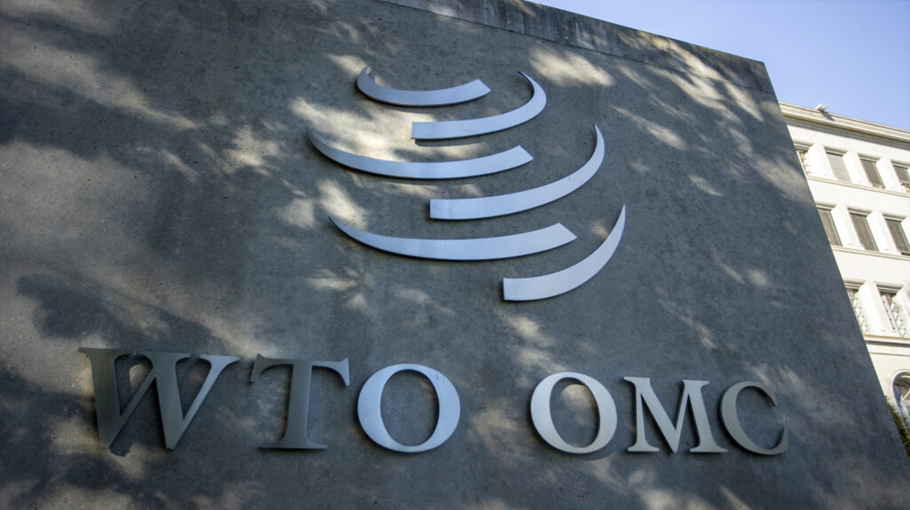WTO ministerial trading in low expectations and high stakes

The World Trade Organisation’s (WTO) 13th Ministerial Conference takes place in Abu Dhabi on 26–29 February. It is expected to include a deal providing transparency and predictability in electronic commerce, endorse an agreement on investment facilitation for development and admit two least developed countries, Timor Leste and the Comoros, as WTO members.
Though welcome, these are modest expectations. This is particularly so given the promises from the 12th Ministerial Conference — tackling fisheries subsidies and offering the hope of restoring a ‘fully functioning dispute settlement mechanism no later than 2024’. On fisheries subsidies the differences between parties have been widening. There is also little sign of progress in restoring the dispute settlement mechanism. No progress will be made in the reform of agricultural trade given discord over whether India’s grain stockholding policy constitutes an illegal subsidy.
Deadlock in dispute settlement — disabled since December 2019 by a US veto on appointing Appellate Body judges — is particularly serious. This is because of the key role of the WTO’s judicial function in underpinning the body’s legislative, rule-making activities. Restoring a fully functioning dispute settlement mechanism will only happen when US concerns that the WTO is biased against the use of trade remedies to China’s state subsidies are addressed.
The in-principle basis for an agreement is not hard to envisage. China could agree to greater discipline on subsidies to its state-owned enterprises operating in competitive international markets. This would be in return for more tolerance for subsidies to those enterprises providing public services in China’s domestic market. Such a commitment from Beijing could conceivably be secured as a precondition for China’s entry into the Comprehensive and Progressive Trans-Pacific Partnership.
But the likelihood of such an agreement is very slim given the geopolitical rivalries and tensions in trade and relations between the Western democracies and China. It is these tensions that have prompted US President Joe Biden’s administration to maintain and strengthen the Trump administration’s trade restrictions while massively increasing state subsidies to ‘national champions’. And these tensions led European Commission President Ursula von der Leyen and French President Emmanuel Macron to speak of the dangers of ‘overdependence’ on global supply chains.
Each of them, along with US National Security Adviser Jake Sullivan, may now speak of de-risking rather than de-linkage, but the goal is unchanged — self-reliance within the global value chain. This goal comes at a great cost in terms of trading opportunities forgone.
Protectionist advocacy by political leaders is a symptom of a deeper problem — widespread public ambivalence above international commerce. The compelling need is to address the discontents of trade. Economies must be made more resilient to external shocks by fostering sound economic and regulatory regimes and strengthening the advocacy of open markets.
Advocacy against deeply entrenched protectionist sentiment has worked in the past. In Australia, Corden’s analysis of the costs to farmers of manufacturing protection was used in the 1970s by the Productivity Commission and the Australian Financial Review’s Maximilian Walsh to weaken the Australian Farmers’ Federation’s support for protection and open the way to the trade reforms of former prime ministers Bob Hawke and Paul Keating.
Advocacy is harder now. When in July 2023 the Australian Productivity Commission’s Trade and Assistance Review warned of the dangers of rent seeking from subsidies and featherbedding, it was accused by a federal Australian Labor Party source as representing ‘a 1980s neocon rant’.
But there is no shortage of strong analysis in favour of open markets. Take just two recent examples. On the costs of protection, the International Monetary Fund found that tariff increases cause real exchange rate appreciation and lead to significant declines in domestic output and productivity, higher unemployment and higher inequality.
Even with shocks from foreign competition there is a positive dimension. Recent work by Philippe Aghion, analysing the French motor vehicle sector, finds that if an import shock affects the upstream market for auto parts, competition in the parts market will increase. Production costs fall and firms have more incentive to innovate. This may seem rather distant from the immediacy of the talks in Abu Dhabi.
But if the discontents of trade are not seriously addressed, WTO Ministerial Conferences will continue to underperform. More critically, the gains that three decades of globalisation have brought to growth and development will be irremediably compromised.
Ken Heydon is Visiting Fellow at the London School of Economics and Political Science. He is a former Australian trade official and senior member of the OECD secretariat and his latest book is The Trade Weapon (Polity).
Source: East Asia Forum




